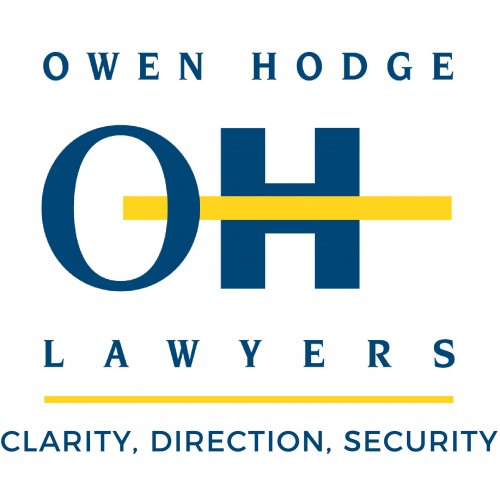Best Nursing Home Abuse Lawyers in Hurstville
Share your needs with us, get contacted by law firms.
Free. Takes 2 min.
List of the best lawyers in Hurstville, Australia
About Nursing Home Abuse Law in Hurstville, Australia
Nursing Home Abuse refers to the neglect or mistreatment of residents in aged care facilities. In Hurstville, part of the Greater Sydney area in New South Wales, this issue is governed by both state and federal law. These laws mandate the protection of elderly residents' rights and well-being while in care. Abuse can take various forms, including physical, emotional, financial, and neglect, and these actions are subject to serious legal consequences. The Australian Government, through bodies like the Aged Care Quality and Safety Commission, oversees compliance with these laws to ensure the safety and dignity of nursing home residents.
Why You May Need a Lawyer
Seeking legal counsel can be crucial in the following situations related to Nursing Home Abuse:
- Suspicion or evidence of physical or emotional abuse of a relative in a nursing home.
- Neglect of care, such as insufficient medical attention leading to deteriorated health conditions.
- Financial exploitation, such as unauthorized use or theft of a resident's funds or assets.
- Violation of resident rights, including privacy breaches or restrictions on communication with family.
- Death of a resident under suspicious or unaddressed circumstances.
Legal expertise can help you navigate complex laws, gather evidence, hold perpetrators accountable, and pursue compensation or other remedies.
Local Laws Overview
Nursing Home Abuse in Hurstville falls under several key legal frameworks:
- Aged Care Act 1997: Provides the regulatory infrastructure for aged care, specifying standards of care and resident rights.
- Commonwealth legislation: Includes various standards and responsibilities for aged care providers, ensuring safety and proper care.
- The Elder Abuse Helpline and Resource Unit: Offers guidance and is part of mechanisms in place to address cases of elder abuse.
- New South Wales Crimes Act 1900: Addresses various criminal activities related to abuse, including assault and fraud.
Understanding these legal instruments is essential when addressing abuse claims and seeking justice.
Frequently Asked Questions
What constitutes nursing home abuse?
Nursing home abuse encompasses physical harm, negligence, emotional manipulation, financial exploitation, or deprivation of basic needs or rights.
What are the signs of nursing home abuse?
Signs include unexplained injuries, sudden changes in behavior, poor hygiene, unexplained financial transactions, and fearfulness around caregivers.
How do I report nursing home abuse in Hurstville?
Any suspicions or evidence of abuse should be reported to the Aged Care Quality and Safety Commission or law enforcement authorities immediately.
What legal actions can be taken against a nursing home for abuse?
Legal actions can include civil lawsuits for compensation, criminal charges against individuals responsible, and complaints to regulatory bodies.
Can I sue a nursing home for neglect?
Yes, if neglect leads to harm or violates regulations, legal proceedings can be initiated against the facility or responsible individuals.
Who can be held liable for nursing home abuse?
Liability may fall to individual caregivers, nursing home management, or the facility’s governing body, depending on the circumstances.
What is the first step if I suspect abuse?
Ensure the resident's immediate safety, then document evidence and report concerns to the authorities and consult with a lawyer.
Are there time limits to file an abuse complaint?
Yes, timelines may vary based on the type of claim (criminal vs civil), so it's important to act swiftly and seek legal advice promptly.
How can a lawyer assist with my case?
A lawyer can provide legal advice, help gather evidence, represent you in court, and negotiate settlements to ensure justice is served.
Is there financial assistance available for legal fees?
Legal aid or pro-bono services may be available for those who qualify, helping ease the burden of legal costs.
Additional Resources
Several resources can provide assistance:
- Aged Care Quality and Safety Commission: Oversees complaints and ensures compliance with care standards.
- Elder Abuse Helpline and Resource Unit (EAHRU): Offers information and support for elder abuse concerns.
- Legal Aid NSW: Provides legal assistance for eligible individuals on various matters, including elder abuse.
Next Steps
If you suspect or are aware of nursing home abuse, consider taking the following steps:
- Ensure the immediate safety of the affected individual.
- Document any signs or evidence of abuse or neglect.
- Report the abuse to relevant authorities such as the Aged Care Commission or police.
- Consult with a specialized lawyer to understand your legal options and initiate proceedings if necessary.
Taking prompt action is crucial for safeguarding the rights and welfare of vulnerable individuals in nursing home settings.
Lawzana helps you find the best lawyers and law firms in Hurstville through a curated and pre-screened list of qualified legal professionals. Our platform offers rankings and detailed profiles of attorneys and law firms, allowing you to compare based on practice areas, including Nursing Home Abuse, experience, and client feedback.
Each profile includes a description of the firm's areas of practice, client reviews, team members and partners, year of establishment, spoken languages, office locations, contact information, social media presence, and any published articles or resources. Most firms on our platform speak English and are experienced in both local and international legal matters.
Get a quote from top-rated law firms in Hurstville, Australia — quickly, securely, and without unnecessary hassle.
Disclaimer:
The information provided on this page is for general informational purposes only and does not constitute legal advice. While we strive to ensure the accuracy and relevance of the content, legal information may change over time, and interpretations of the law can vary. You should always consult with a qualified legal professional for advice specific to your situation.
We disclaim all liability for actions taken or not taken based on the content of this page. If you believe any information is incorrect or outdated, please contact us, and we will review and update it where appropriate.








